MEASURE Evaluation News
Please visit our news archive for items older than July 2014.

Helping Programs that Treat Tuberculosis and HIV Address the Needs of Mobile Populations
MEASURE Evaluation and partners studied mobility patterns, treatment outcomes, and the feasibility of regional client tracing strategies among people in care for HIV and/or TB in the Lake Victoria region, bordered by Tanzania, Uganda, and Kenya.

World Malaria Day 2020: Two countries
On World Malaria Day, we talked to three experts about the ongoing malaria surveillance, monitoring, and evaluation (SME) work in two countries at different stages of intervention.

What We're Reading on COVID-19
For World Health Day, April 7, we share some of what we’ve been reading on COVID-19.

Pandemic Control—ethical considerations
Mobilizing resources from governments and the private sector to quickly collect and analyze data on emerging diseases is essential, but health information systems are most helpful when they are well established before an emergency.

International Women’s Day Includes Health and Empowerment
International Women’s Day celebrates the accomplishments of women in all aspects of society, including their rights for access to health services that meet their needs. Meeting client needs was an aspect of the topic investigated in a recent study in two districts of Botswana.
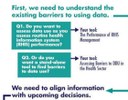
A Decision Tree: Making decisions on data demand and use
The MEASURE Evaluation project developed and published a Decision Tree for Designing Interventions for Data Demand and Use to help guide national government ministries, donors, and implementers in designing interventions to improve data use.

Seeking Consensus on How to Measure the Impact of Family Planning Total Market Approaches
A new guide offers a step-by-step approach for evaluating total market approach (TMA) activities.

A Decade of Collaboration: Mali’s Health System Prepared to Serve the Population
The story of Mali and the MEASURE Evaluation project is one of transformation, collaboration, and achievement in improving health information systems to deliver better healthcare for Malians.

Tools for Gender-Based Violence Data
High-quality data are essential for a country to get an accurate picture of how gender-based violence (GBV) is affecting its population—as is true with any public health issue.

What’s in it for ME in M&E?
Everything–from program purpose, to planning, to professional development

Dimensions of routine data quality and data management
What you need from assessment setup to analysis

Getting lost in raster, vector, and shapefiles?
Find your way through geospatial data visualization.

Think you can frame an implementation research question on health?
A comprehensive online course shows you how.

Workshops in 4 countries; 1,000s of downloads
MEASURE Evaluation developed curricula on impact evaluation and qualitative methods in evaluation.
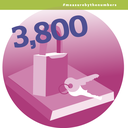
Life's little instruction books for information system security and maturity
Access resources for improving health information system management and security of electronic health records.

160,000 downloads of the “411” on a 360-degree look at health information systems
These MEASURE Evaluation resources provide a learning space for countries looking for guidance on health information systems strengthening.

What’s in your toolbox? Here’s how to assess health information, data quality, and routine data
These MEASURE Evaluation tools can help improve health information system (HIS) performance.

Health data—use it or miss out. Here’s how.
Access popular tools and guidance for improving use of health data.
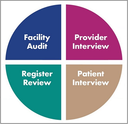
Providing TB Clients the Care They Need: Assessing the Quality of Tuberculosis Services in the Philippines
MEASURE Evaluation conducted a Quality of TB Services Assessment in randomly selected health facilities across the country to identify where services were of high quality and where there were gaps. The QTSA includes four tools—the facility audit, the provider interview, the patient interview, and the register review.

Were you among the 500+ participants in the webinar session on impact evaluation?
Access MEASURE Evaluation tools and webinars for building evaluation capacity.
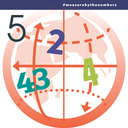
5 universities + 2 continents + 43 modules in 4 units = a way to learn health informatics
Learn about the health informatics for low- and middle-income countries short course for health information system professionals.

What's black and white and downloaded 26,800 times?
Learn about the Routine Health Information System (RHIS) curriculum.

World Population Day
Access the updated family planning and reproductive health (FP/RH) indicators database.

Framework for Evaluating National Malaria Programs in Moderate- and Low-Transmission Settings
Roll Back Malaria’s Monitoring and Evaluation Reference Group (RMB MERG) Evaluation Task Force developed a framework for evaluating national malaria programs in moderate- and low- transmission settings.

MEASURE Evaluation: USAID Awards UNC $36 Million to Support Malaria Control and Elimination
A malaria-focused program just awarded—“Strengthening Surveillance, Monitoring, and Evaluation for Malaria Control and Elimination (PMI Measure Malaria)”—will provide $36 million in new funding for MEASURE Evaluation.

Zanzibar Study Shows Routine Health Information Systems Data Can Help Malaria Prevention Efforts
A new study released June 21, 2019 in the Lancet’s eClinicalMedicine shows that routine health management information systems (HMIS) are an important tool for determining the impact of malaria investments in Zanzibar.

Day of the African Child: Helping government policy action to support vulnerable children
On the Day of the African Child (Sunday, June 16), we highlight our work in Ghana and Uganda to assess, address, and monitor care for children.

MEASURE Evaluation Strengthens Ability of Three Ministries in Burkina Faso to Prevent Outbreaks of Infectious Diseases
On May 9–10, 2019 in the district of Pô, Nahouri province, Center-South region of Burkina Faso, MEASURE Evaluation hosted an event to train key personnel in the human health, animal health, and environmental sectors on the country’s new One Health electronic platform.

New Health Facility Registry Will Support Decision Making for Better Health in Nigeria
A new tool to track health facilities nationwide was just launched in Abuja, Nigeria.
MEASURE Evaluation Co-organizes the International Conference on Big Data for Health
The conference provided a timely platform to exchange knowledge, experiences, and expertise to discuss digital innovations and ways to harness big data for sustainable development in health service delivery.

Family Planning Data Collaboration Advances DHIS 2 for Improved Program Data
As Bangladesh moves further toward digital health information management, it is realizing more of its capacity to generate, analyze, and use high-quality data for planning and decision making. This was emphasized at a recent signing ceremony.

Making Decisions on Data Quality
Read about new data quality tools—one is a guide to existing tools; another helps countries lead their own data quality assessments.

Can Analysis of Tweets Inform Interventions to Prevent Gender-Based Violence?
MEASURE Evaluation recently explored the feasibility of using large social media datasets to track changes in attitudes on gender norms regarding sexual relationships between younger women and older men and attitudes on gender-based violence against women and girls.

Assessing, Addressing, and Monitoring National Care Reform in Armenia
The training aimed to strengthen the monitoring and evaluation capacity of specialists who are involved in the reform of the national care system that serves vulnerable children.

MEASURE Evaluation Sub-grantee, Mudasir Saeed: Building Experience and Challenging Stereotypes in Pakistan
A Q&A with MEASURE Evaluation sub-grantee Mudasir Saeed focuses on building experience and challenging stereotypes in Pakistan.

Ripple Effect Mapping, and other MEASURE Evaluation Presentations at Evaluation 2018
MEASURE Evaluation has contributed seven presentations and two posters covering topics from gender to Twitter. This story focuses on work related to the ripple effect mapping (REM) method.

UNC Awarded $48 Million D4I Project to Support Data Use and Evidence Building in Global Health
A new $48 million award, Data for Impact (D4I), begins this month. Its goal is to help low-resource countries gather and use information to strengthen their health policies and programs and improve the health of their citizens.

MEASURE Evaluation Awarded More than $35 Million to Improve Data and Impact in Fight against Tuberculosis through the TB DIAH Project
A tuberculosis (TB)-focused program just awarded will provide more than $35 million in new funding from the United States Agency for International Development (USAID) for MEASURE Evaluation to strengthen TB data and knowledge sharing worldwide.

Social Services Support Improved Adherence to Tuberculosis Treatment
People treated for tuberculosis (TB) in Ukraine are more likely to stay on their medication if they receive some social services, according to a study conducted by MEASURE Evaluation.

Improving Quality of Malaria Data Supports Better Decision Making in the Health Sector
Since 2009, the USAID-supported MEASURE Evaluation Project has been working with Mali’s National Malaria Control Program (NMCP) in supporting the Routine Malaria Information System (RMIS).

Innovative Self-Assessment to Improve Care for Children
MEASURE Evaluation works with four countries in Europe and Africa on reforms for child care.
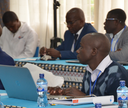
News Article: Training a Tech-Savvy Health Workforce
Kenyatta University in Kenya, in collaboration with MEASURE Evaluation, and four other universities, hosted a week-long training program in July on appropriate application of information communication technologies (ICTs) to health programs.

MEASURE Evaluation Receives Research Award from IAS for Study on Programs Integrating HIV and Tuberculosis Care in Ukraine

Learning what works to improve health information systems
The project has written four documents that synthesize literature and project activities in four areas of work.
Family Planning and Reproductive Health Indicators Database
The database provides a comprehensive listing of key indicators for monitoring and evaluating family planning and reproductive health programs.

Transforming malaria surveillance
MEASURE Evaluation offers this visualization of what routine health information systems can accomplish for malaria surveillance.

A tribute to our dear friend, Subrata
Subrata Kumar Bhadra passed away unexpectedly on March 27, 2018. Subrata had a long history with MEASURE Evaluation. Ever eager, consistently positive, and always smiling, he was one of a kind.

Big Steps in a Short Time: Guinea Celebrates a Stronger Health Information System
MEASURE Evaluation is proud to have been a part of the Guinean government’s response to reorganize its health information system to serve its citizens. Read about the progress and a related meeting.

MEASURE Evaluation Project Scores UNC’s Largest-Ever Award: $232 Million for Social Science Research
One of the largest research awards made to the University of North Carolina at Chapel Hill (UNC) just got bigger, making MEASURE Evaluation not only UNC’s largest project in global health, but the largest single award the university has ever received, at $231.9 million

Simple Steps with Lasting Impact for Newborn Survival
Every child born should have the optimum chance of survival.

Building a Network
New interoperability toolkit helps integrate health information systems in developing countries

A Tool to Rely On
A new, innovative toolkit helps assess and build M&E capacity in the public sector.

Methods for Measuring Impact of Malaria Control Efforts on Child Deaths
MEASURE Evaluation has co-authored six of nine publications contained in a special supplement of the American Journal of Tropical Medicine and Hygiene.

Improving Care for Vulnerable Children
More than 60 participants gathered in London to consider ways to further develop and strengthen country leadership in assessing and ultimately accelerating national reform in alternative care for children in four countries.

Public Health: Building Bridges to the Most Vulnerable
Karar Zunaid Ahsan, called Zunaid, is a PhD candidate in the Gillings School of Public Health at UNC, focusing on practical ways to deliver better health care to vulnerable populations, and working to analyze data to achieve that goal.

How Monitoring and Evaluation Is Taught in MPH Programs Around the World
A recent review of how monitoring and evaluation is taught in masters of public health programs globally follows a continuing trend from knowledge-based learning to competency-based learning.

Malaria Interventions Assessment in Nigeria Is “First of Its Kind”
The President’s Malaria Initiative (PMI) engaged MEASURE Evaluation to lead an evaluation to document progress of malaria control interventions and assess changes in malaria outcomes in four Nigerian states that received PMI support.

PEPFAR ambassador recognizes MEASURE Evaluation staff for work on DATIM
Certificates were awarded to five MEASURE Evaluation team members in June to recognize their contributions to the development and maintenance of DATIM (Data for Accountability, Transparency and Impact).

Improving Health Networks: A Smart Idea
Using organizational network analysis, MEASURE Evaluation identified organizations providing some aspect of HIV care and investigated the ways in which they work—or don’t work—together.

Factors that Affect Collection and Use of Sex- and Age-Disaggregated Data
MEASURE Evaluation has released three publications to help donors, governments, and groups working on health information systems to better understand factors that affect collection and use of sex- and age-disaggregated data.

A Word on Verbal Autopsy: Measuring malaria deaths in the developing world
Relatives can provide more complete data on malaria deaths, which aids policy and program planning. But new techniques are needed.

Data crucial for effective HIV response: Four podcasts from MEASURE Evaluation
Stigma, geography, size estimation, and gender: Four brief podcasts from our experts on developing the tools needed to reach global 90-90-90 goals and stem the tide of HIV transmission.

Improving Data Quality in Mobile Community-Based Health Information Systems
Intended for those designing a mobile application or planning an mHealth programme, guidelines from MEASURE Evaluation focus on strengthening data quality in mobile community-based health information system(s) (HIS) around the world.

Best Practices for Adolescent- and Youth-Friendly HIV Services
MEASURE Evaluation recently published findings of a review of youth-oriented HIV programs with the objective to uncover proven and promising practices and make them available to the global community.

Availability and Quality of Family Planning Services by Faith-Based Organizations in Malawi, Kenya, and Haiti
A recent study by MEASURE Evaluation contributes new evidence on the availability and quality of family planning services by faith-based organizations.

MEASURE Evaluation Works to Improve the Lives of Vulnerable Children in Armenia
MEASURE Evaluation staff, and representatives of the U.S. Agency for International Development (USAID), met with the Armenian Minister of Labor and Social Affairs, Artem Asatryan, on June 13, 2017, to kick off a two-year program to help Armenia improve its child care programs.

Helping vulnerable children to thrive
MEASURE Evaluation has conducted a performance evaluation of the Sustainable, Comprehensive Responses for Vulnerable Children and Their Families” (SCORE) activity, which develops household-specific plans to improve children’s lives.

Going Paperless
MEASURE Evaluation helps Swaziland ensure data quality as the country digitizes its health information system.
Tracking Malaria Cases One by One
MEASURE Evaluation provides training to strengthen surveillance in Senegal

International Women’s Day
We asked two of our gender experts to talk about their work and the differences they see in attention paid to women in developing countries.

Electronic Management Information Systems Strengthened in Bangladesh
A recently released report from the Bangladesh Ministry of Health and Family Welfare features work by MEASURE Evaluation to strengthen the country’s electronic management information systems.

Five Ways We Help to Change the World
Achieving improvements in global health isn’t done alone—it takes a system. Here’s how we help on many fronts to improve lives.

Challenges and Opportunities in Data Quality, Privacy, and Security
MEASURE Evaluation undertook an assessment to study how mobile phone user behavior among health workers in LMICs may affect data quality—including data privacy, security, and confidentiality.

Routine Data, Uncommon Evaluation: An Innovative, Mixed-Methods Assessment of Malaria Interventions in Nigeria
MEASURE Evaluation helped assess effectiveness of interventions to reduce malaria disease intervention in Nigeria.

Visualizing What Needs to Be Done for Better Health
For the past year, MEASURE Evaluation has been providing technical assistance to a cadre of 14 health professionals in Zambia to create compelling health information products that communicate and lead to action.

Improving Data Use to Combat Malaria in the DRC
National- and provincial-level staff from the National Malaria Control Program, Health Management Information System Division, and other malaria organizations and implementing partners are in Kinshasa, the Democratic Republic of the Congo (DRC) to participate in data collection for a MEASURE Evaluation data use assessment.

Can Mobile Phones Help Moms Have Healthier Babies?
When the South African National Department of Health needed to provide vital info to pregnant women, MEASURE Evaluation SIFSA helped to provide support for the NDoH MomConnect project, a mobile text messaging program that’s reached more than 900,000.

GEMNet-Health Innovates Model for Its Trainings
A recent training workshop on impact evaluation of health programs, held in July in Accra, Ghana, showcased a new model for joint trainings conducted by a network of regional training institutions.

Girls are counting on us to count them
MEASURE Evaluation is a leader in the field of gender-sensitive monitoring and evaluation (M&E) by increasing the capacity of individuals and organizations to collect, analyze, and use gender-sensitive health information for better program and policy decision making at local, national, and global levels.

As mHealth Expands, a Call to Curb the Enthusiasm
Mobile health (mHealth) technologies can improve access to health services and data for decision making, and the technology has the potential to lower health costs by reducing redundancy. But are mHealth programs fulfilling their potential, and are developing countries ready to fully implement mHealth?

Measuring the Impact of Malaria Interventions in the DRC
Since 2011, MEASURE Evaluation has provided technical and administrative support to the U.S. President’s Malaria Initiative to evaluate the impact of interventions to control malaria in 16 priority countries, including the Democratic Republic of the Congo (DRC).

Strengthening Referral Systems for HIV Clients in Tanzania
A study in Tanzania suggests the importance of monitoring the HIV referral system between community and clinical services.

Data for Decision Making for Malaria Control in Mali
MEASURE Evaluation supports Mali's efforts to control malaria through key interventions.

Geographic Information Systems Working Group Meeting: GIS to Support PEPFAR
The annual meeting of the MEASURE Evaluation Geographic Information Systems (GIS) Working Group in June 2016, in Washington, DC, focused on how geospatial data and tools support PEPFAR in the fight for an AIDS-free generation.

Assessing Trafficking in Persons and Health
MEASURE Evaluation announces the publication of a systematic literature review of 70 peer-reviewed, published articles to help guide practice, policy, and research to assess TIP and health.

A Total Market Approach to Improve Access to Family Planning
The “total market approach” to family planning, can address gaps and inequities in access for couples through coordination and collaboration among the three key players for family planning: government health care services, nonprofit health care services, and the business/commercial sector for family planning products.

Uganda Tool for Prioritizing Vulnerable Households Adapted in Two Countries
On the Day of the African Child, we focus on the needs of vulnerable children on the continent and a success taking place right now, through adaptation of a tool built for one country being applied in two more to help children.

New Geographic Information Systems (GIS) Resources
MEASURE Evaluation helps the health sector in developing countries use geospatial tools such as GIS to provide a more complete understanding of health in a community. The project recently added several new GIS resources.

App Competitions
MEASURE Evaluation explored gray literature and talked with app competition leaders to understand better what these contests might offer, focusing on best uses of competitions.

Transforming Rural Health Workers' Jobs through Digitization
Effective use of digital information and communication technologies is poised now to change the way rural health workers work and to offer them an increased level of efficiency. In Bangladesh, a pilot program has begun transforming the rural health workers’ jobs and the accuracy of the data they gather.

Malaria: Facing a Health Crisis with a Solid Plan
MEASURE Evaluation is working to improve health information systems and malaria outcomes in the Democratic Republic of the Congo.

Tanzania: CRVS Strengthening with SAVVY Implementation
In Tanzania, a team is helping the country record births and deaths for health data.

Gender Data Sheds Light on Vulnerable Populations in Zambia
When policymakers get access to gender-related data to inform national health strategies, as well as program development and implementation, health outcomes for vulnerable populations improve.

Schistosomiasis and HIV Acquisition
A comprehensive review of secondary data sources has confirmed a long-suspected link between female genital schistosomiasis (FGS) and HIV infection for women in southern Africa.

Privacy, Security, and Confidentiality of EHRs
Use of electronic health records (EHRs) can improve quality of care, reduce costs, enhance patient mobility, improve reliability, and enable evidence-based medicine. However, to realize these benefits, privacy, security, and confidentiality of EHRs must be ensured.

Learning, to Prevent the Next Outbreak
Guinea was ground zero for the 2014 outbreak of Ebola virus, and health experts were concerned that other critical health issues such as routine care for maternal and child health, might suffer because of clinic closures or fears of contracting the virus. MEASURE Evaluation conducted a rapid assessment to understand better the effects of Ebola and published a journal article on the results.

A Purpose-built Tool Provides Transparency for Enrollment in Services
MEASURE Evaluation is proud to contribute to improving the situation of orphans and other vulnerable children globally through our monitoring and evaluation support for programs that build the resilience of vulnerable families. Especially for the Day of the African Girl Child (Sunday, October 11), we recognize the work in Uganda to identify the most vulnerable.

Weekly Malaria Monitoring Helps Mali Track Potential Outbreaks on a Web-based Database
The USAID mission in Mali requested MEASURE Evaluation to support the National Malaria Control Program (NMCP) to expand its malaria data reporting system to some of the health facilities in the region and to ensure timely and accurate malaria case reporting as a way to identify and head off any outbreak. MEASURE Evaluation responded by setting up a Malaria Epidemic Surveillance System (MESS) for early detection of malaria outbreaks.

September 26, World Contraception Day
MEASURE Evaluation works to ensure optimal demand, analysis, and use of data to measure the performance of family planning programs and to inform family planning policies in developing countries.

Know Human Trafficking, Know Your Response: M&E Indicators for Trafficking in Persons and Health
The MEASURE Evaluation project has published Trafficking in Persons and Health: A Compendium of Monitoring and Evaluation Indicators, providing guidance on measurement where trafficking, gender and health intersect.

World Population Day: A market approach to meet contraceptive need
On World Population Day (July 11, 2015) MEASURE Evaluation draws attention to its ongoing collaboration with the EVIDENCE project to work on what is called the “total market approach” (TMA) to providing family planning.

Measurement and Accountability for Results in Health Summit
MEASURE Evaluation is participating in the MA4Health Summit and offers four fact sheets on topics being discussed.

Bangladesh Urban Health Survey Results Shared at International Conference on Urban Health
The Bangladesh Urban Health Survey 2013 (UHS 2013), aimed to determine the changes in the health and service utilization profile of the urban population, with explicit attention to examining whether the differences between slum and non-slum groups have narrowed since the 2006 survey.

Health Systems that Can Talk to Each Other Can Respond Better to Emergencies
The Ghana Ministry of Health is hosting an international meeting on ways to improve health information systems so that countries in the region can better respond to health needs, such as the Ebola epidemic.

National Malaria Control Program Staff Receive M&E Training in Democratic Republic of Congo
MEASURE Evaluation conducted a two-week course for monitoring and evaluation (M&E) of malaria programs in DRC, supported by USAID/PMI.

Family Folders: Low-resource Health Data with a Big Impact
Community Health Information Systems in Ethiopia

Fundamentals of Implementation Research Online Course Tailored for High-bandwidth Audiences
MEASURE Evaluation has restructured the popular Fundamentals of Implementation Research online course. The update transformed the existing, low-bandwidth online course into an engaging and interactive alternative for those in high-bandwidth settings.

Forum Focuses on Collaborative Efforts to Fight Malaria in Kenya
MEASURE Evaluation PIMA helped facilitate the second Kenya National Malaria Forum. The forum brought together stakeholders involved with malaria and health in Kenya.

Preliminary Results of Bangladesh Urban Health Survey 2013 Released
In response to the rapid growth in urban population, the government of Bangladesh and USAID tasked a research team at icddr,b, based in Bangladesh, and MEASURE Evaluation with conducting a survey designed to obtain a broad health profile of the urban population of Bangladesh. The Urban Health Survey (UHS) 2013 is the second nationally representative survey providing insight into health status and health-seeking behavior in Bangladesh’s cities.

Transforming Gender Norms, Roles and Power Dynamics for Better Health in India
A dissemination event and two-day workshop held October 15-17, 2014, in New Delhi, India, shared findings from a systematic review of the influences of gender-integrated programming on health outcomes.

New mHealth Service for Pregnant Women in South Africa
South Africa launched its first large-scale mHealth service, MomConnect, in August 2014. The project uses mHealth tools to provide pregnant women with information about available health services.

MEASURE Evaluation End-of-Phase-III Event in Zambia
MEASURE Evaluation’s capacity building program in Zambia was celebrated in a close-out event held in Lusaka at the end of July. With the end of MEASURE Evaluation Phase III approaching, a local committee organized the event to recognize the collaboration between MEASURE Evaluation and the Government of Zambia over the past 16 years

Long-term Capacity Building in Central America
Recent dissemination meetings in Costa Rica and Panama shared findings from secondary analyses of national sexual and reproductive health surveys. The findings in both countries are the result of long-term capacity building processes to promote secondary analysis of national health surveys.

Zambian Capacity Building Workshop Series
A June workshop concluded a four-part capacity building series of workshops for a team of Zambians. The workshop prepared participants to serve as master trainers for future data analysts as well as improve their own data analysis, interpretation and presentation skills.

The Next Phase of MEASURE Evaluation
The objective of the MEASURE Evaluation Phase IV project is to enable countries to strengthen their systems to generate high quality health information that is used for decision-making at local, national, and global levels.

















